15 Biggest Gambling Countries: The Giants of the Global Gambling Market

Table of Contents
- Introduction
- Brief Overview of the Global Gambling Industry
- Why the Biggest Gambling Countries Matter
- Importance of Gambling in National Economies
- The Metrics Behind the Madness
- The Contenders: 15 Nations Where Gambling Rules
- Gambling Revenue Comparison: Who’s Leading by Numbers?
- Cultural Impact: Gambling Habits, Preferences & Behaviour
- The Rise of Digital Gambling Giants
- The Future Outlook: Emerging Markets & Investment Opportunities
- Conclusion
- FAQ
Introduction
Gambling is becoming a significant business around the world, generating billions of dollars. It has both old-fashioned places like casinos and racetracks and new ones like mobile apps and online gambling. In many regions of the world, gambling is now easier to access and more popular because of new legislation and technology.
More than just entertainment, gambling is also important to many countries’ economies. It brings in tax money, creates jobs, and attracts tourists, especially in places like Las Vegas, Macau, and Singapore. In several regions, proceeds from lotteries and betting are used to fund vital public initiatives, including education, healthcare, and infrastructure.
In this article, we look at the 15 biggest gambling countries. These are ranked based on gambling revenue, how much people spend, laws around gambling, and how developed the industry is. This gives us a clear view of which countries lead the global gambling market.
Current Market Stats
The global online gambling industry is expected to grow at a compound annual growth rate of 11.7% from 2024 to 2030, and it is anticipated to generate projected revenues of US$ 153,566.1 million by 2030.
Brief Overview of the Global Gambling Industry
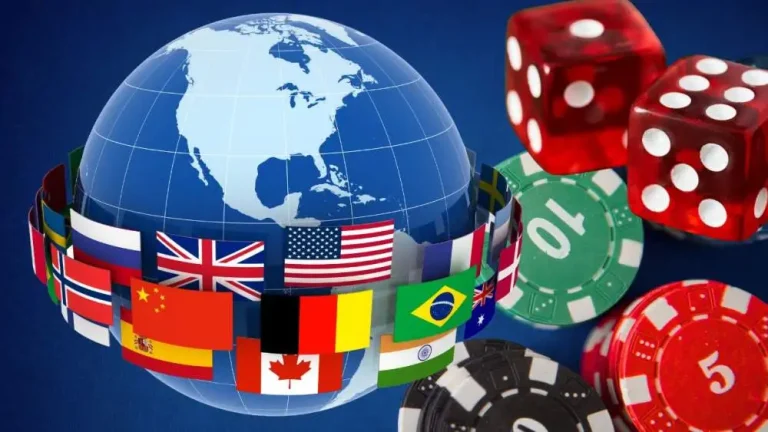
The global gambling industry is a large and rapidly growing market that includes many different types of betting and gaming. It covers traditional activities like casinos, sports betting venues, lotteries, poker tournaments, and a fast-expanding online gambling software sector. Thanks to technological advances such as widespread mobile internet access and secure digital payment systems, gambling has become much easier and more convenient worldwide. This has helped the industry reach new audiences and grow faster than ever before.
Many countries are changing their gambling laws to allow more types of betting, helping the industry grow quickly. This has turned gambling into a multi-billion-dollar industry that supports national economies through job creation, tax generation, and tourism growth. Gambling also shapes entertainment, with new games and platforms appearing to keep players interested. Overall, the global gambling industry is an important and fast-changing part of today’s economy and culture.
Why the Biggest Gambling Countries Matter
The biggest gambling countries are very important because of their size, rules, and cultural influence. They make the most money from gambling and often lead the way with new trends and technology. Their large number of players and well-developed gambling businesses attract big companies, investments, and tourists, making these countries centres of gambling activity.
Also, the rules and laws these countries create often become examples for others to follow. For example, how the U.S. or the U.K. handles online betting, responsible gambling, or taxes can influence gambling laws in other countries.
Culturally, these countries help make gambling more accepted as a form of entertainment. Their importance extends beyond the money they generate; they shape how gambling grows, is viewed, and remains sustainable around the world.
Importance of Gambling in National Economies
A lot of money comes from gambling, and it helps countries grow in many ways. Here are some key points:
-
Revenue Generation
Gambling brings in a lot of money through taxes, fees, and licenses. This money helps pay for public services like healthcare, schools, and roads. Places like the United States, Macau, and Australia earn billions from gambling every year.
-
Job Creation
The gambling industry provides millions of jobs worldwide. These include casino workers, game developers, marketers, regulators, and customer service staff. It also supports related jobs in tourism, hotels, and technology.
-
Tourism and Infrastructure
Many places build big resorts and casinos to attract tourists. This helps local businesses and leads to better roads, hotels, and public facilities. Cities like Las Vegas and Macau rely heavily on gambling tourism.
-
Technology Growth
Online gambling encourages new technology like digital payments, cybersecurity, and mobile apps. This helps the whole tech industry grow and makes gambling more modern and accessible.
-
Investment and Trade
Gambling attracts money from investors inside and outside the country. Big gambling companies trade on stock markets, and businesses work across borders, helping global trade and cooperation.
-
Regulation and Safety
When gambling is properly regulated, it keeps players safe and reduces illegal gambling. Governments can make sure games are fair and promote responsible gambling to protect people.
In short, gambling is more than just fun; it’s an important part of the economy that creates money, jobs, innovation, and investment, while also encouraging responsible laws and social benefits.
The Metrics Behind the Madness
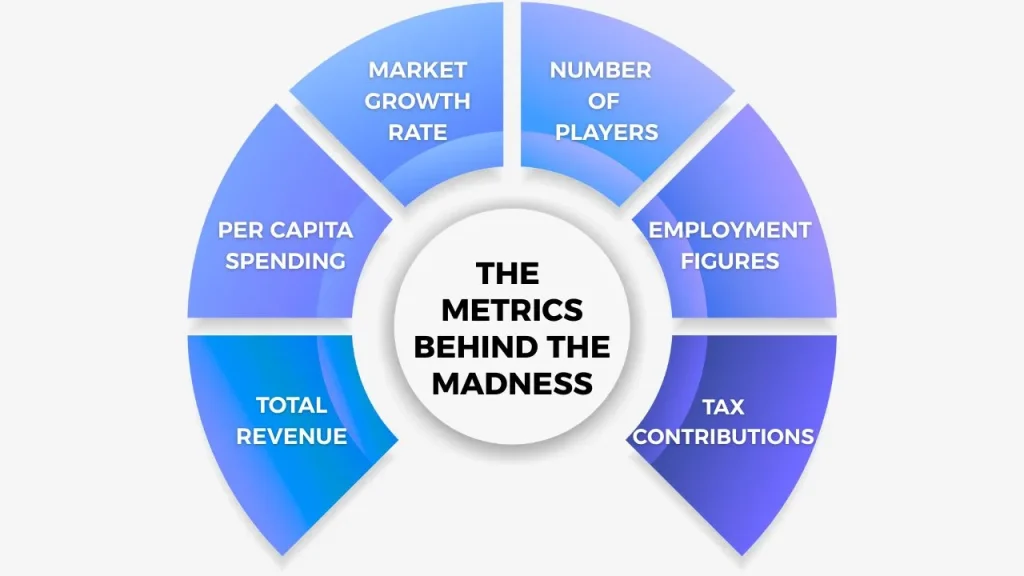
- Total Revenue: The total amount of money generated from all gambling activities, including casinos, sports betting, lotteries, and online gambling.
- Per Capita Spending: How much, on average, each person spends on gambling in a country. This shows how popular gambling is among the population.
- Market Growth Rate: How fast the gambling market is growing, usually helped by new technology and changes in laws.
- Number of Players: How many people actively participate in gambling, whether in physical venues or online.
- Employment Figures: The number of jobs created by the gambling industry.
- Tax Contributions: How much money governments earn from gambling taxes and fees.
The Contenders: 15 Nations Where Gambling Rules
1. United States

- Gambling Laws: Laws are made by each state, so rules about gambling are very different. Some states allow casinos and online gambling, while others limit or ban them.
- Key Hubs: Las Vegas (Nevada) and Atlantic City (New Jersey) are iconic gambling destinations.
- Online & Sports Betting: Rapid expansion since the 2018 repeal of PASPA. States like New Jersey and Pennsylvania lead in online sports betting.
2. China (Including Macau)
- Macau’s Dominance: Known as the “Gambling Capital of the World,” Macau generates more gambling revenue than Las Vegas.
- Mainland Restrictions: Gambling is mostly illegal in mainland China except for state-run lotteries.
- Tourism-Driven Revenue: Macau relies heavily on tourists from mainland China and beyond.
3. Australia
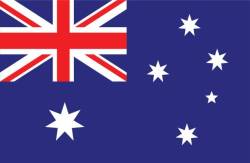
- Per Capita Spending: Australians spend more on gambling per person than any other country.
- Popular Formats: Poker machines (pokies) are widely used; sports betting is also highly popular.
- Regulation: Each state manages gambling laws, with a strong focus on harm minimization strategies like self-exclusion programs and bet limits.
4. United Kingdom

- Regulatory Environment: Known for a well-structured and transparent gambling market.
- Regulator: The UK Gambling Commission oversees all gambling activity.
- Popular Activities: Sports betting, online casinos, and national lotteries dominate consumer preferences.
5. Japan

- Casino Development: Integrated Resort (IR) model is being introduced to boost tourism and controlled gambling access.
- Pachinko: A culturally unique and semi-legal form of gambling, widespread and socially accepted.
- Recent Legislation: New laws have legalized limited casino operations under strict regulations.
6. Canada
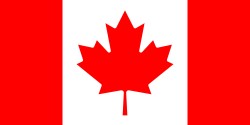
- Provincial Control: Gambling is regulated by provinces; Ontario and British Columbia lead in market size.
- Online Gambling: Legalised and growing rapidly, especially with the launch of Ontario’s iGaming market.
- Indigenous Casinos: Many are run by Indigenous communities, helping local economies grow.
7. Germany

- Regulatory Landscape: Historically restrictive, but recent reforms (GlüNeuRStV) allow online gambling under strict guidelines.
- Market Evolution: Legalization of online slots and sports betting in 2021 marks a turning point.
- Consumer Trends: Sports betting remains a top choice among German gamblers.
8. Italy

- Historical Significance: Italy has had state-run lotteries and other types of regulated gambling for a long time.
- Online Gambling: Heavily taxed but widely available; a major source of government revenue.
- Popular Activities: Lotteries and sports betting are deeply embedded in Italian culture.
9. France

- Regulator: ANJ (Autorité Nationale des Jeux) oversees the gambling industry.
- Monopoly vs. Private: State retains monopoly over some forms like lotteries, while online sports betting is open to licensed private operators.
- Cultural Preferences: Horse racing and the national lottery are especially popular.
10. Singapore

- Casino Resorts: Marina Bay Sands and Resorts World Sentosa are world-renowned integrated resorts.
- Controlled Access: Locals must pay a levy to enter casinos to discourage excessive gambling.
- Regulation: Highly regulated with an emphasis on responsible gambling and social safeguards.
11. South Korea

- Domestic Limitations: Locals can only gamble legally at one casino Kangwon Land.
- Popular Forms: Sports betting (via government-approved platforms) and lotteries.
- Illicit Market: Underground and online gambling operations pose ongoing regulatory challenges.
12. Spain

- Decentralized Regulation: Each autonomous region manages gambling laws and licenses.
- Online Growth: One of Europe’s fastest-growing online gambling markets.
- Tourism: Casino resorts in destinations like Madrid and Barcelona attract international players.
13. Philippines

- POGOs: The Philippine Offshore Gaming Operators (POGOs) serve international clients, especially in Asia.
- Casino Development: Manila is home to large integrated resorts like Okada Manila and City of Dreams.
- Economic Role: Gambling is a major contributor to government revenues and tourism.
14. South Africa
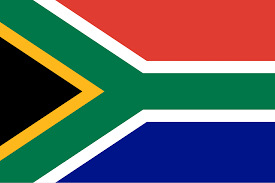
- Leading Market in Africa: Most developed gambling infrastructure on the continent.
- Popular Formats: Casinos and sports betting, especially on football and horse racing.
- Challenges: Illegal gambling remains a significant issue despite strict regulation.
15. Sweden

- Regulator: Spelinspektionen enforces strict consumer protection standards.
- Online Dominance: A high percentage of gambling activity occurs online.
- Focus Areas: Consumer safety, responsible gambling, and strict advertising limits.
Gambling Revenue Comparison: Who’s Leading by Numbers?
When looking at online gambling markets around the world by how much money they make, a few countries stand out. These countries have many gamblers, relaxed gambling laws, and famous gambling spots. Here is a simple look at the biggest gambling markets based on their revenue:
| Country | Estimated Annual Revenue | Key Drivers | Growth Areas |
| USA | $60+ billion | Las Vegas, Atlantic City, online sports betting, mobile gaming | Rapid growth in online sports betting and iGaming post-PASPA repeal |
| UK | $15–18 billion | Sports betting, online casinos, lotteries | Highly regulated and diversified online market |
| China (Macau) | $20–25 billion | High-stakes casino gaming, VIP junket tourism | Limited mainland growth; Macau remains the hub |
| Japan | $30–40 billion | Dominated by Pachinko (quasi-legal) | Integrated Resorts (IRs) to expand after legalization |
| Australia | $20–25 billion | High per capita gambling spend, poker machines (pokies), online sports betting | World’s highest gambling spend per person |
| Canada | $12–15 billion | Provincial lotteries, casinos, online gambling | Ontario’s iGaming market driving digital growth |
| Italy | $12 billion | Sports betting, lotteries, video lottery terminals (VLTs) | Despite high taxes, demand remains strong |
| Germany | $10–12 billion | Sports betting, online slots | Legalized online gambling via GlüNeuRStV treaty |
| France | $10 billion | Lotteries, horse racing, online sports betting | |
| Philippines | $5–7 billion | POGOs (offshore), integrated casino resorts | International revenue driven by offshore operators and tourism-focused casino resorts |
| Spain | $5–6 billion | Lotteries (ONCE, SELAE), online betting | Online gambling continues to rise, especially among younger demographics |
| South Africa | $2–3 billion | National lottery, sports betting, casinos | Online betting expanding under regulated framework |
| Sweden | $2–2.5 billion | State-run and licensed online operators, sports betting | Transparent and regulated online gambling environment |
| South Korea | $8–10 billion | Kangwon Land Casino, lotteries, horse racing | Growth in limited local gambling and online lottery systems |
| Singapore | $5–6 billion | Marina Bay Sands, Resorts World Sentosa | Focused on integrated resorts and tourism-based gaming |
Cultural Impact: Gambling Habits, Preferences & Behaviour
Gambling is more than an economic activity; it’s a cultural phenomenon that reflects national identities, social norms, and historical traditions. Across the globe, gambling habits and preferences differ significantly, shaped by legislation, religion, societal attitudes, and local customs. Here’s a look at how gambling manifests culturally in some of the world’s top gambling nations:
1. United States
- Habits & Preferences: Casino gaming (especially slots and table games), sports betting, lotteries, and poker.
- Cultural Influence: Las Vegas has turned gambling into a form of entertainment. The recent rise in fantasy sports and online betting is also a sign of the country’s competitive, sports-driven mentality.
- Behavior: Gambling is seen as a form of leisure and personal freedom, though concerns about addiction and responsible gaming are growing.
2. China (Macau & Mainland)
- Habits & Preferences: In Macau, table games, especially baccarat, are the most popular. People from the mainland like games of chance more than games of skill.
- Cultural Influence: Gambling has ancient roots in Chinese culture, often associated with luck, fate, and social status.
- Behavior: Gambling is a high-stakes, high-prestige activity, particularly among wealthier individuals. In contrast, mainland China’s strict stance has pushed many to offshore or illegal markets.
3. Australia
- Habits & Preferences: Pokies (slot machines) are extremely common in pubs and clubs. Sports betting is also popular.
- Cultural Influence: Gambling is deeply ingrained in Australian social life and widely accepted.
- Behavior: High-frequency gambling is normalized, though rising concerns about gambling harm have led to strong public health campaigns.
4. United Kingdom
- Habits & Preferences: Sports betting (especially on football), horse racing, lotteries, and online casino games.
- Cultural Influence: A long history of betting shops and televised betting odds has made gambling mainstream.
- Behavior: Regular, small-stake betting is common and socially accepted. However, there’s growing scrutiny on advertising and youth exposure.
5. Japan
- Habits & Preferences: Pachinko is the dominant gambling pastime; legal casino gambling is emerging.
- Cultural Influence: Gambling is both widespread and discreet. Pachinko parlors are everywhere but are often considered a recreational activity, not “gambling” in the Western sense.
- Behavior: Gambling is often solitary and mechanical, contrasting with the social atmosphere of Western casinos.
6. Canada
- Habits & Preferences: Lotteries, casinos, and online sports betting are popular. Bingo and VLTs are common in certain provinces.
- Cultural Influence: Gambling is viewed as a regulated, legitimate form of entertainment, especially in provinces with strong government oversight.
- Behavior: Canadians show moderate gambling habits, with increasing interest in online and mobile platforms.
7. Germany
- Habits & Preferences: Sports betting, online slots, and lotteries.
- Cultural Influence: Traditionally cautious toward gambling, but changing attitudes with legalization of online gambling.
- Behavior: Germans are generally risk-averse, favoring regulated environments and low-stakes play.
8. Italy
- Habits & Preferences: Lotteries, VLTs, sports betting.
- Cultural Influence: Gambling has a long historical connection with the state; often associated with chance and hope.
- Behavior: Italian gamblers often play regularly but in small amounts, with a strong presence of community-based gambling.
9. France
- Habits & Preferences: Lottery, horse racing (PMU), sports betting.
- Cultural Influence: State monopolies have shaped the gambling culture, which is formal and conservative.
- Behavior: Gambling is seen more as a tradition or pastime than a lifestyle.
10. Singapore
- Habits & Preferences: Casino gambling and lotteries; controlled betting on sports.
- Cultural Influence: Gambling is carefully balanced between entertainment and social risk.
- Behavior: Locals tend to gamble with caution due to cultural and legal restrictions (e.g., entry levies for citizens).
11. South Korea
- Habits & Preferences: Lotteries, sports betting, and occasional casino visits to the only legal venue for locals (Kangwon Land).
- Cultural Influence: Strong societal stigma against gambling, especially for addiction-related issues.
- Behavior: Many gamble quietly or travel abroad; illegal online gambling is a concern.
12. Spain
- Habits & Preferences: Lotteries (like El Gordo), online betting, casino tourism.
- Cultural Influence: Gambling is viewed as festive and family-inclusive, especially during holidays.
- Behaviour: Lottery participation is high across all ages and social groups.
13. Philippines
- Habits & Preferences: People enjoy casino gambling, online betting (like POGOs), and local lotteries.
- Cultural Influence: Gambling is popular but also controversial because it’s linked to economic chances and sometimes crime.
- Behavior: Many locals gamble socially, but religious and ethical beliefs affect how they view gambling.
14. South Africa
- Habits & Preferences: Casinos, horse racing, and sports betting.
- Cultural Influence: Gambling is widely accepted in urban centres, often tied to social gatherings.
- Behaviour: Gambling varies widely by region and demographic, with economic disparity influencing access.
15. Sweden
- Habits & Preferences: Online casinos, lotteries, and sports betting.
- Cultural Influence: Regulated and socially responsible, with a strong emphasis on consumer protection.
- Behavior: High online participation but relatively cautious spending habits, aided by national self-exclusion tools.
Want to Know more about Global Gambling Market
The Rise of Digital Gambling Giants
In the last few years, the gaming business has changed a lot. It has gone from regular casinos and betting shops to internet platforms that are rising quickly. This change has given internet gambling software solutions businesses a lot of influence, and they now control the world market. Several key factors have fueled their rapid growth:
-
Technological Advancements and Accessibility
Smartphones and high-speed internet are now so common that they have changed the way people gamble. Online platforms let people gamble and play games anytime, anyplace, so they don't have to be there in person. This makes gambling easier than ever.
-
Diverse Gaming Options
Digital gambling companies offer a vast array of betting opportunities from online casinos and sports betting to poker rooms and virtual slot machines, catering to a broad audience with varying interests.
-
Cutting-Edge Technology
Heavy investment in technology like live streaming makes it possible to play games in real time, and AI makes games more personal and helps find fraud. Secure payment systems also make sure that transactions go smoothly and safely, which makes players feel more confident.
-
Global Expansion
These giants operate across multiple countries, skillfully navigating local regulations and cultural differences to expand their reach and attract millions of users worldwide.
-
Continuous Innovation and Competitive Edge
Because of fierce competition, companies are always coming up with new ideas that make games more fun, improve user interfaces, and add new features that keep gamers interested and loyal.
-
Economic Contributions
Beyond entertainment, digital gambling giants significantly impact economies by creating jobs, generating tax revenue, and fueling technological development and investments.
In short, the growth of big online gambling companies shows how new technology and changing player habits are changing the gambling world, making it easier to access, more varied, and quickly growing worldwide.
The Future Outlook: Emerging Markets & Investment Opportunities
As traditional gambling markets become saturated, the most significant growth opportunities are shifting to emerging regions like Asia, Latin America, and parts of Africa. These areas have huge potential thanks to more people getting online, wider smartphone use, and changing gambling laws. Countries such as India, Brazil, and Nigeria are seeing fast growth in online betting expansion, attracting local startups and global investors.
At the same time, improvements in blockchain technology and the rise of cryptocurrencies are opening new doors for decentralised betting platforms, especially in places where banking services are limited. For investors, the combination of growing player numbers, better regulations, and advanced technology offers exciting opportunities.
To succeed in these markets, companies must know the local laws well, respect how people view gambling, and encourage safe and responsible gambling to help the industry grow healthily.
Conclusion
The future of gambling is changing quickly. Digital platforms, mobile apps, and crypto casinos make it easier and more fun to play. New technology is changing where and how people gamble, making it more personal. At the same time, rules about gambling are changing worldwide. Some places are making laws stricter to fight addiction and crime, while others are relaxing laws to earn more tax money and grow their economies. Because of this, responsible gambling is more important than ever.
As a leading gaming software provider company Tecpinion helps by making smart systems that keep gambling companies competitive and follow the rules. Operators and regulators are working hard to protect players by using tools like AI, spending limits, and education to encourage safe gambling. Tecpinion supports these efforts by building technology that balances new ideas with player safety.
Finding the right balance between growth and responsibility is key to making sure the gambling industry stays fair, safe, and strong for the future.
FAQs
- What risks are associated with online gambling?
Gambling addiction, losing money, gambling when underage, and possible scams are all risks. Reputable sites give players tools and support to help them deal with these concerns.
- What technologies are shaping online gambling?
The main technologies helping online gambling grow are mobile apps, live video for real-time betting, artificial intelligence (AI), blockchain for better security, and using cryptocurrencies for payments.
- Is online gambling legal everywhere?
No. Online gambling laws are very different in each country or region. Some places allow and control it, while others have strict bans or limits. Always check the rules where you live before you play.
- How are governments responding to online gambling?
Different governments are doing different things in response. Some are making rules stricter to protect consumers, while others are making internet gambling legal and taxing it to make money and keep the industry in check.
- Are responsible gambling programs effective?
Yes. Responsible gambling tools like self-assessment tests, spending limits, and behaviour tracking help reduce problem gambling and encourage safer, more controlled play.
- How can players stay safe while gambling online?
Players should choose sites that are licensed and regulated, set boundaries on how much time and money they may spend, not chase losses, and get treatment if gambling starts to hurt their lives.
Want to know more
about Gambling
Read out the Related Blogs
Recent Post
-
Why is the demand growing for flexible iGaming PAM Platforms?
-
What Attracts Online Casino Players in 2026
-
Best 20 Sweepstakes Casino Games Providers of 2026
-
Top Casino Game Providers 2026: Best Companies for Casino Game Development
-
White Label or Bespoke iGaming Platform – Which Suits Your Business Vision


